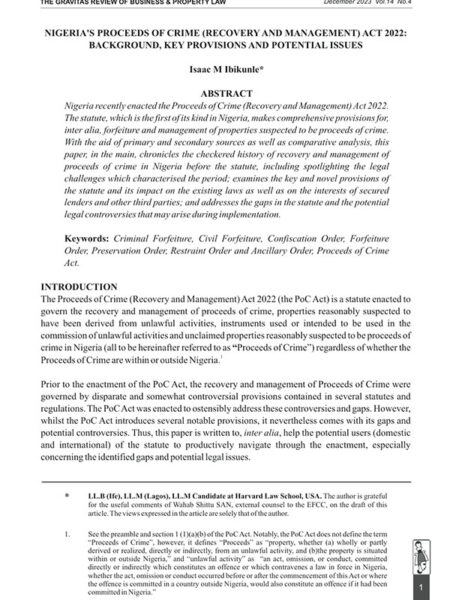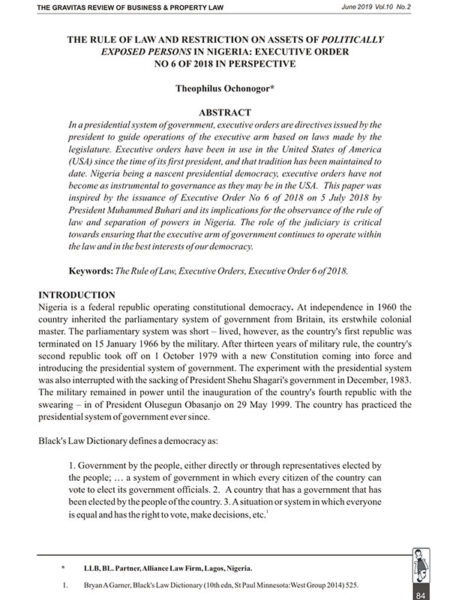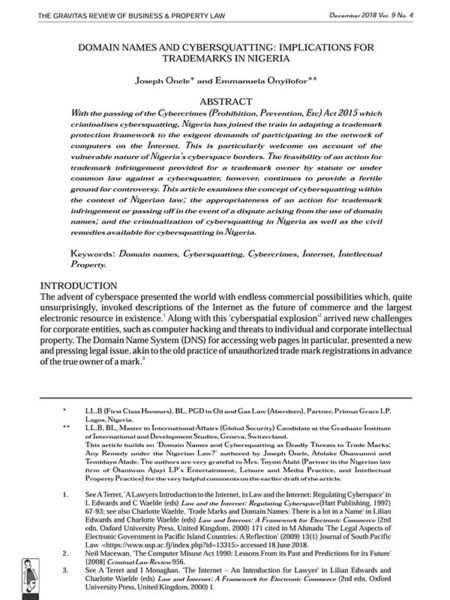-

Nigeria’s Proceeds of Crime (Recovery and Management) Act 2022: Background, Key Provisions and Potential Issues
0₦2,500.00Isaac Ibikunle, in his article, Nigeria’s Proceeds of Crime (Recovery and Management) Act 2022: A Review of Key Provisions and Issues Arising, examines Nigeria’s recently enacted Proceeds of Crime (Recovery and Management) Act 2022. The statute, which is the first of its kind in Nigeria, makes comprehensive provisions for forfeiture and management of properties suspected to be proceeds of crime. With the aid of primary and secondary sources as well as comparative analysis, Ibikunle chronicles the checkered history of recovery and management of proceeds of crime in Nigeria prior to the statute, including spotlighting the legal challenges which characterised the period; examines the key and novel provisions of the statute and its impact on the existing laws as well as on the interests of secured lenders and other third parties; and addresses the gaps in the statute and the potential legal controversies that may arise during implementation.
-

The Rule of Law and Restriction on Assets of Politically Exposed Persons in Nigeria: Executive Order No.6 of 2018 in Perspective
0₦2,500.00Theophilus Ochonogor, Partner, Alliance Law Firm, Lagos Nigeria in The Rule of Law and Restriction on Assets of Politically Exposed Persons in Nigeria: Executive Order No. 6 of 2018 in Perspective, reviews the constitutionality of Executive Orders (EO) generally, and EO6 specifically. Theophilus explores the jurisprudential history of Executive Orders, relevant cases on the issue, and argues that EO6 which empowers the Attorney General to preserve and protect from dissipation the assets of current or former government officials, or any politically exposed person is arbitrary, an usurpation of judicial powers, and an assault on the country’s constitutional democracy.
-

Domain Names and Cybersquatting: Implications for Trademarks in Nigeria
0₦2,500.00Joseph Onele, Partner Primus Grace LP and Emmanuela Onyilofor, Graduate Student at the Institute of International and Development Studies Geneva, in their article, Domain Names and Cybersquatting: Implications for Trademarks in Nigeria, examine the regulation of domain names and the concept of cybersquatting in Nigerian law. They consider the appropriateness of instituting an action for trademark infringement or passing off in the event of a dispute arising from the use of domain names, the criminalisation of cybersquatting as well as the civil remedies available for cybersquatting in Nigeria.
The Gravitas Review of Business & Property Law



